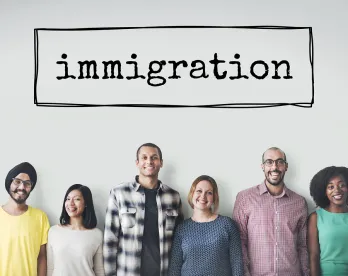Those seeking to escape immediate danger or imminent persecution often rely on false documents when fleeing to a safe country. But can a fraudulent or illegal entry into the U.S. pose an issue for asylum?
The manner of entry into this country, or the circumvention of an orderly refugee process abroad, is indeed one of the factors that can weigh against granting asylum. That, however, cannot be an independent ground to deny asylum, but has to be considered in the context of other factors, as recognized by the Board of Immigration Appeals and several Courts of Appeals. See Lin v. Gonzales, 445 F.3d 127, 133-34 (2d Cir. 2006). As one court noted, if illegal entry were an independent reason to deny asylum, “virtually no persecuted refugee would obtain asylum.” Wu Zheng Huang v. INS, 436 F.3d 89, 100 (2d Cir. 2006).
There is a distinction, however, between the use of a false document to escape immediate danger or imminent persecution (e.g., obtaining a false passport to be able to escape imminent danger), and the presentation of a false document in immigration court in support of an asylum application (e.g., an affidavit in support of an asylum application with inaccurate or false information). See Lin v. Gonzales, 445 F.3d at 133.Indeed, any inadequately explained inconsistency between an immigration application and subsequent testimony may lead to an adverse decision. In Aiqin Xue v. Holder, 538 F. App’x 35 (2d Cir. 2013), for example, the Court of Appeals concluded that an adverse credibility determination was proper where the stated purpose of the applicant’s visa was to visit her daughter in the U.S., yet the applicant later testified at her asylum hearing that she did not tell the U.S. government that visiting her daughter was the purpose of her visit. Notably, the applicant’s explanation that a friend prepared her visa application, which the applicant did not review, but merely signed without reading it, was rejected. Id.
While the manner of entry itself may not be an insurmountable bar for asylum seekers, it is important that such manner be honestly disclosed in proceedings before U.S. authorities. Substantial authority recognizes that the prompt admission that someone does not have a legal basis to remain in the U.S. mitigates the negative impact of the manner of entry, including one with fraudulent documents. See, e.g., Wu Zheng Huang v. INS, 436 F.3d at 100, citing In re Fauziya Kasinga, 21 I. & N. Dec. 357, 368 (BIA 1996) (reversing a discretionary denial of asylum where the applicant had purchased a fraudulent passport to enter the U.S., but admitted its falsity to an immigration inspector at the border); Zhang Hui Jiang v. United States AG, 173 F. App’x 929, 931 (2d Cir. 2006) (the applicant’s false representation as a U.S. citizen upon entry into the U.S. was mitigated by her admission of removability, and the fraudulent entry was overshadowed by her well-founded fear of future persecution).



 />i
/>i

